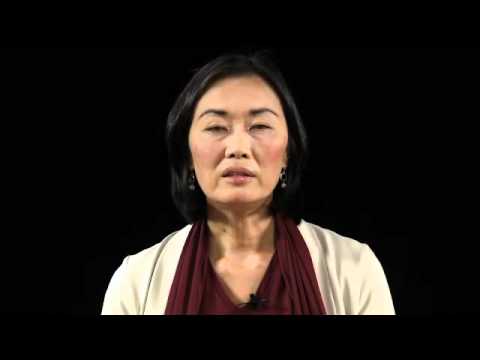Reiki :
Dr. Shipon teaches the essence of Reiki in 10 minutes. Dr. Shipon is a licensed psychologist in New Jersey (#4738) and has been a Reiki Master for 12 years. …

Dr. Shipon teaches the essence of Reiki in 10 minutes. Dr. Shipon is a licensed psychologist in New Jersey (#4738) and has been a Reiki Master for 12 years. …


Para realizar sesiones de Reiki, cada dos minutos suena una campanilla par cambiar de posición de manos.
Stress can destroy your health and hurt your quality of life and so if you are suffering from it be very watchful. Don’t let it harm your health and your quality of life. Try some stress solutions but perhaps give first herbal stress relief a try.
Click Here For Overcoming Stress Instant Access Now!
Well, if you will go to a doctor for an advice on which stress remedies you can try, you will most likely be recommended to take some medicinal drugs. It might help, it might work, but then you must know that if these medicinal drugs are taken for long they can cause various side effects that may just affect your eating and sleeping habits. You must know that it is not really advisable for you to take some medicinal drugs for a long period of time.
You will most likely not be recommended to take some herbal medicines. For with these medicines, you will get no assurance that you will eliminate stress. But you can give them a try. These medicines, if taken for long will not cause any side effects.
Herbal medicines typically come in capsules. But there are those that also come as tea. Examples of these herbal medicines include Ginseng, Peppermint, Hawthorne berries and Linden flowers. These can help manage stress and even eliminate it.
You have freedom to choose which to try. But I am giving you warning that with medicinal drugs you may get various side effects. You can first give herbal medicines a try. There are already a lot of testimonials on the efficacy of some of the herbal medicines. You can first give them a try. You will not get any side effects with them. Just explore the Internet for more herbal medicines so you will have more choices. Go over it for maybe a couple of hours.
Click Here For Overcoming Stress Instant Access Now!
This author writes about Overcoming Stress and Treating Anxiety And Panic Attack.

a beautiful ONE hour Meditation Music for YOU to meditate religiously , ..de-stress…and rejunevate your heart , body and soul !


From Eckhart Tolle TV Kim leads us in a relaxing ten-minute breathing practice that we can use to deepen our awareness of our breath and remain present.
Video Rating: 4 / 5
We all hear over and over again how meditation can help us with stress, reduce blood pressure, and so on. Westerners most often hear about TM, which is just a form of basic Buddhist meditative techniques. If all you have been practicing is this, however, then you are cheating yourself out of a greater benefit.
TM is just a small, tiny part of the entire Buddhist meditative tradition. It is basic, but very important. It’s as simple as repeating the same patterns over and over again. You can count your breaths, sheep, or repeat a word of your choosing each time you exhale.
However, if this is all you practice, then you are a cheating yourself. You are cheating yourself out of a higher understanding of yourself, and a better control over your reaction to stressful or sad situations.
Oftentimes referred to as the objectless meditation, mindfulness will help you understand how your brain functions at all times-particularly during unpleasant times. Objectless meditation, or mindfulness, is the practice of simply acknowledging whatever may be happening in your mind. These activities that you acknowledge could come in the form of thoughts, feelings, desires, fantasies, etc.. Anything. Absolutely anything that goes on in your head. As you acknowledge these activities, you learn more about yourself.
As you learn more about yourself in different situations, you become better equipped to recognize and predict how you will feel based on what is happening in your mind. Generally, Buddhists will teach you to only recognize these feelings and stop there. However, I recommend that you also make note of any causal connections that you quickly notice. This would help you understand yourself even better, and prepare you for analytical meditation (which I recommend, but more on that later.)
Let me explain how being skillful in meditation as well as mindfulness will help you not only to drastically decrease recovery time from an unpleasant situation, but also rewire your reactions.
With basic meditation, you have become adept at staying focused on an object of your choosing. With mindfulness, you have become adept at understanding yourself and precursors to various emotions. Due to your increased mindfulness, you may be able to pick up on a pattern of thoughts or feelings that you know will lead to a bad state of mind. The moment you pick up on that, you “preemptively” strike by meditating on ANYTHING.
If you don’t have time for formal meditation, you simply meditate on whatever you are doing. Perhaps you’re showering, or brushing your teeth, driving to work.. etc. Doesn’t matter. As long as you are focusing on some object (whether it be literally an object, or an activity), acknowledging entering thoughts and returning to your object, you are meditating. That’s all it takes. You will be surprised to see how the few hours of getting over bad news or a bad incident of some kind can turn into just a few minutes.
When you first begin to meditate this way, you will notice that your recovery time is MUCH faster. However, this will remain mechanical for a while. What I mean by that is that you will have to stay on top of what is going on in your head, and continue to preemptively strike with meditation until your mind gets used to doing this. After some time, your mind will automatically react this way, and bad situations will not feel so bad anymore. It’s very interesting, but our minds generally store any kind of actions that result in a positive outcome rather easily, so training your mind to do this should come relatively quickly. This brings me to one final point. When you succeed at reducing your ‘recovery’ time, allow yourself to feel proud and happy. The better you feel about your success, the more impact it will have on your mind and the faster your mind will reprogram itself.
Feel free to contact me regarding any aspect of Buddhist meditation.
I’ll get back to you ASAP. Joe_taloe@yahoo.com
Find More Buddhist Meditation Articles

DOWNLOAD – https://secrets2meditation.com/goto/?url=http://www.dvdvideosoft.com/free-dvd-video-software.htm 0:00 – Kevin Kendle – Alnilam.mp3 10:37 -Thom Brennan – Angkhor.mp3 16:38 – Parijat – The …
Video Rating: 4 / 5
There is a joke in Buddhist circles: “Don’t just dosomething, sit there.”
What is Meditation?
Meditation is how we train in continuous awareness. It is also how we train in letting go. Meditating might not appear to be very exciting or productive, but try it and give inner peace a chance.
Meditation is a truly transformative spiritual exercise. Beginning meditators do not always connect the simplicity of what they are doing to the essence of the spiritual search, but it is all there to be discovered by those who try it. The Dzogchen teachings of Tibet say one moment of total awareness is one moment of perfect freedom and enlightenment. You do not need to seek elsewhere; it is all within.
The Practice:
Begin your meditation practice in a place that is quiet and free of distraction. Sit comfortably with your back erect. Stay alert and yet relaxed and at ease. This begins the training in mindfulness, or in cultivating heightened consciousness and awareness.
Begin breathing in and out through you nostrils.
Mindfully breath in, mindfully breath out.
Let go of the natural flow of energy and breathing, and learn to simply let it be.
Pay close attention to each and every inhalation and exhalation, following the breath – the object of your attention, all the way in and all the way out.
What is the Purpose of Practicing Meditation?
Breath awareness practice may not seem immediately productive, but give it a chance. Some spiritual masters make it their primary practice throughout their entire lives. Mindfulness of breathing is the basic mediation practice, and yet it has the power to reach and enhance all levels of consciousness.
It may appear simple, but even so it works on all levels of the path and it is certainly not just for beginners.
It may not be immediately apparent, but to be totally in the moment, which is what meditation requires, means relinquishing the past, the future, and the dualism that makes a distinction between self and others. This is the essence of letting go.
(Inspired by Lama Surya Das: Letting go of the person you used to be)
Want to know more? Have a look at my blog.